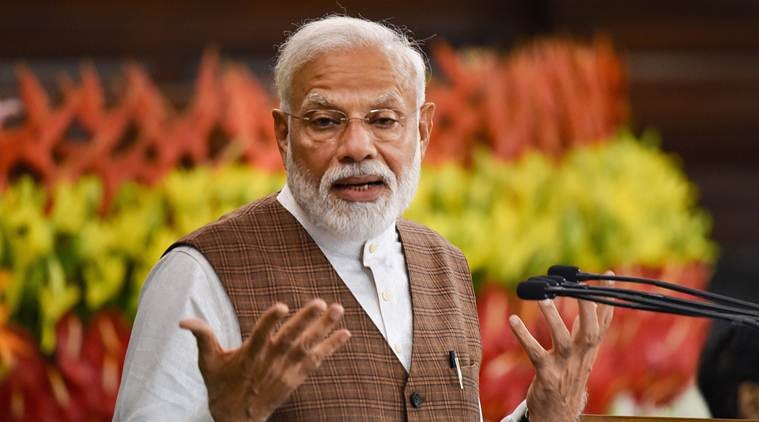
The landslide victory of the Narendra Modi-led Bharatiya Janata Party (BJP) — and the BJP-led National Democratic Alliance — in the Lok Sabha elections is an impressive repeat of the alliance’s 2014 performance. There is, however, one major difference. The euphoria witnessed after the 2014 verdict seems to be absent this time. This can, of course, be expected, given that an incumbent government has won another term, and change — with attendant hope and new aspirations — is not the fundamental message of the election verdict. But a significant reason for this lack of excitement is also the electorate’s realisation about the lack of a credible alternative to the alliance holding office at the Centre.
India’s vibrant democracy, with its numerous intricacies and complexities, wins the country accolades from around the world after every general election. The voting population is also praised for exercising its franchise. But there is hardly any meaningful debate on the choices available to the country’s vast electorate. During the 2019 campaign, some analysts commented on the BJP’s strategy that seemed to be aligned towards the presidential form of government. Issues related to leadership — or lack of clarity about it from the Opposition — emerged as the dominant theme. From a voter’s perspective, at least two or three national-level parties should be in a position to offer leadership to the country. Such a scenario will strengthen our democracy, make governments more accountable to their party manifestos and promises, and gradually move the conversation during election campaigns from trivial to substantive issues. It will also lead to more meaningful debates on matters related to development, the social and economic challenges faced by the country and issues pertaining to national security and foreign policy.
Under the present circumstances, the onus for bringing about such a structural change lies squarely with the Opposition, especially the principal opposition party, the Indian National Congress. It must find ways to shed some of its historical baggage, and re-invent itself. To start with, the party should consider changing its name (though retaining the word “Congress”), induct fresh faces in key party positions, strengthen its organisational structure and work afresh to enhance its outreach. While vote-bank politics is not likely to go away soon, the Congress must also present an agenda for positive change.
The focus on credible alternative(s) also does not mean writing obituaries for coalition politics. A coalition at the national level should, however, present itself as a credible alternative. Demonstrating cohesion in the face of competing objectives at the Centre and state levels would, however, pose a big challenge for such a political formation.
It’s quite likely to be some time before such a credible alternative emerges. Meanwhile, the BJP and NDA must payback the confidence reposed in them by the people. The government should fulfill the unfulfilled, or partially-fulfilled, promises of the BJP’s 2014 manifesto. At the same time, it shouldn’t neglect the promises of the party’s 2019 manifesto. The government can, of course, disregard petty and unfair criticism of its performance but there is merit in paying heed to genuine suggestions and criticisms. That would be the best tribute to the electorate.
The writer is former Commander-in-Chief of Western Naval Command and Southern Naval Command. Views are personal